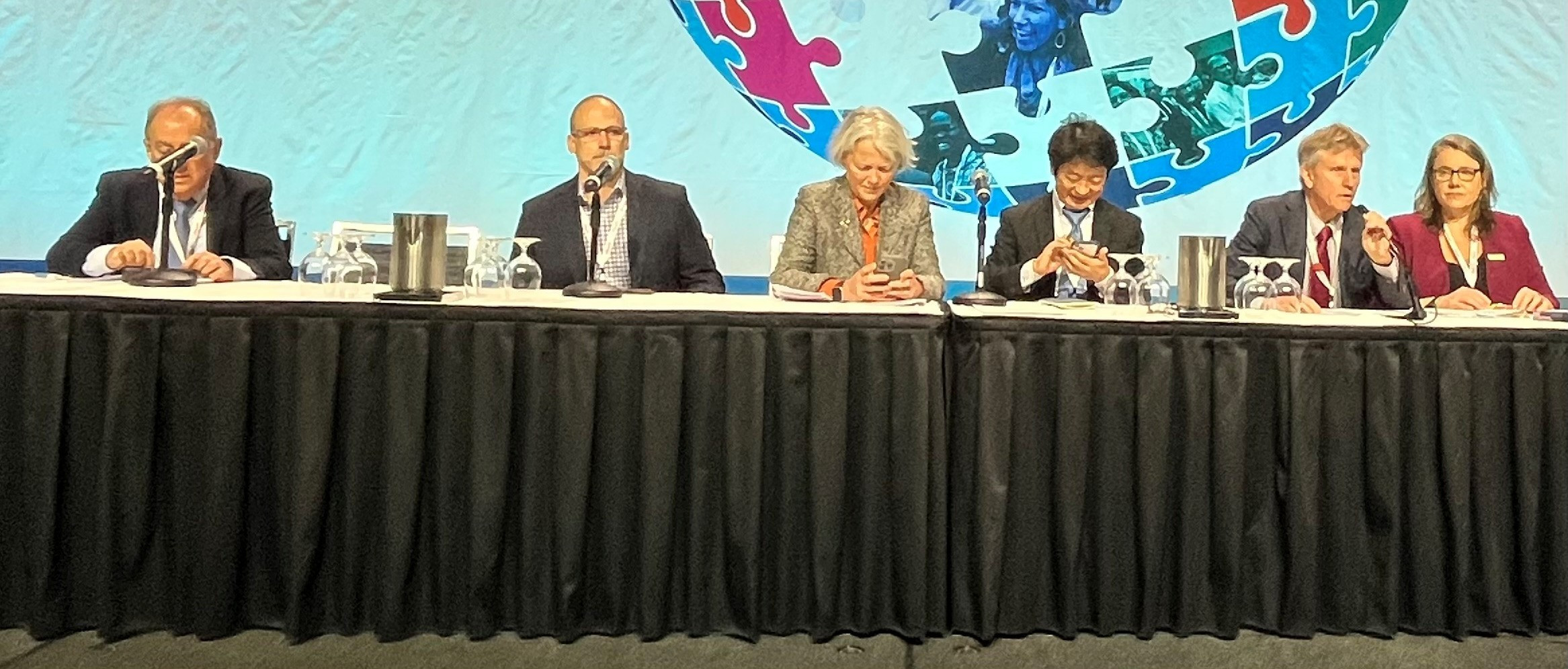ASTMH Annual Meeting 2025
blogCoping With the New Normal as the U.S. Steps Away from Global Health
By: Matthew Davis, Burness

The demise of USAID and U.S. withdrawal from the WHO are prompting African governments to pursue creative ways to maintain key interventions, while major philanthropic funders are consulting with one another about the best way to respond.
These were among the reflections that emerged from a panel discussion at #TropMed25 Wednesday that featured leaders of philanthropic organizations along with representatives from the WHO and the Canadian government, all weighing how to navigate the troubling new normal for global health.
“At one level, Wellcome — along with the Gates Foundation and Novo Nordisk — as major global health philanthropies, we are trying to think about what this really means and where we can make a difference,” said Charlotte Watts, PhD, Wellcome’s executive director of solutions programs and a professor of social and mathematical epidemiology at the London School of Hygiene & Tropical Medicine. “But we are also being careful to not step in in a way that creates an incentive for governments to step out.”
Pauline Mwinzi, PhD, the WHO’s technical officer for schistosomiasis and soil-transmitted helminths and an ASTMH Board member, acknowledged that it’s been an “exceptionally challenging year for global health, particularly in Africa.” But she said many countries are looking for creative ways to maintain progress.
She said several countries have responded to the loss of USAID support for mass drug administration (MDA) campaigns by integrating drug distributions into existing immunization and maternal and child health programs. For example, in South Sudan, the MDA initiative was added to the polio vaccination campaign in a way that required “almost no additional resources,” she said.
Osamu Kunii, MD, MPH, PhD, executive director of the Japan-based GHIT Fund, said the current challenges are an opportunity to consider how regional approaches in areas like regulatory review and product manufacturing can improve efficiencies. He said that, for example, creating a regional regulatory review authority for Africa could help address bottlenecks in getting product approvals.
He also reminded the audience that the populist wave that is driving some of the changes in U.S. policy is also evident in Japan—and that it requires framing global health investments as contributing to the national interest.
“The new prime minister is kind of pushing defense and security,” Kunii said. “Now we are thinking about [discussing] health security as national security, so messaging is very crucial.”
Mitermayer Reis, MD, with Brazil’s Oswaldo Cruz Foundation, said there could be opportunities for Brazil to assume a stronger role in developing research collaborations—both regionally and across the Global South, including with India, South Africa and China. Meanwhile, Fern Bannatyne, with Canada’s Public Health Agency, said the recent establishment of a new federal agency called Health Emergency Readiness Canada (HERC) is an opportunity for Canada to forge new domestic and international health research partnerships.
Wellcome’s Watts said philanthropies are discussing how to attract contributions from organizations that are not currently involved in global health research. But she cautioned that there are limits to how much philanthropy can do to make up for the loss of U.S. support, which is being compounded by cuts in UK spending.
“When we think about our role as philanthropies, we can help, but essentially the gap is so big it can’t be us alone,” she said. “If you look across the philanthropic sector, the resources are just not at that scale.”
Related Posts
By: Matthew Davis, Burness